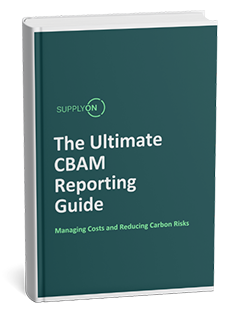How to streamline your LkSG & CSRD work with SupplyOn

Today many companies in Germany face increasing pressure to comply with multiple environmental, social, and governance (ESG) reporting standards. Among these, the German Supply Chain Due Diligence Act (LkSG) and the EU Corporate Sustainability Reporting Directive (CSRD) stand out for their comprehensive requirements.
Companies subject to both laws can streamline their compliance efforts by adopting a unified approach to due diligence and reporting. Here’s how companies can prepare to meet the obligations of both LkSG and CSRD without duplicating work:
1. Human Rights Risk Assessment
Both LkSG and CSRD require robust human rights risk assessments. For example, a manufacturing company can use our LkSG risk management software to identify and assess risks of child labor in its supply chain. By integrating this process with the CSRD’s requirements, the company can document the preventive measures taken and the positive outcomes achieved.
2. Environmental Risk Management
Environmental due diligence is a critical component of both laws. For instance, a textile company might face risks related to water pollution from dyeing processes. Our software can help monitor these risks and implement corrective actions, which can then be reported under CSRD.
3. Preventive and Corrective Actions
To avoid redundancy, companies should establish a unified process for implementing preventive and corrective actions. For example, a food processing company might discover forced labor in its supply chain. Using our software, they can implement corrective measures and track their effectiveness, fulfilling both LkSG and CSRD requirements.
4. Transparency and Public Reporting
Transparency is a cornerstone of both LkSG and CSRD. A technology company can use our software to consolidate its due diligence activities into a single, comprehensive sustainability report. This report can include data on carbon emissions, labor practices, and corrective actions taken, ensuring compliance with both laws.
5. Training and Capacity Building
Training is essential for effective compliance. For instance, a logistics company can provide training on human rights and environmental standards to its employees and suppliers and create a record on our software as evidence. This ensures you are appropriately providing necessary training, documenting including acceptance of your supplier code of conduct by the suppliers.
6. Integration into Business Processes
Integrating ESG considerations into core business processes is vital for streamlined compliance. For example, an Automotive company can consider the outcome of the due diligence process in its procurement system such as sourcing, ensuring that human rights and environmental impacts are considered when selecting suppliers.
7. Reporting
Effective reporting to regulators is required by both laws. The user of our ESG Suite can prepare their draft report using our software. This helps a company to standardize their ESG reporting practices in a centralized software solution.
To discover more about our ESG Suite and LkSG Risk Management Software, contact us here.



